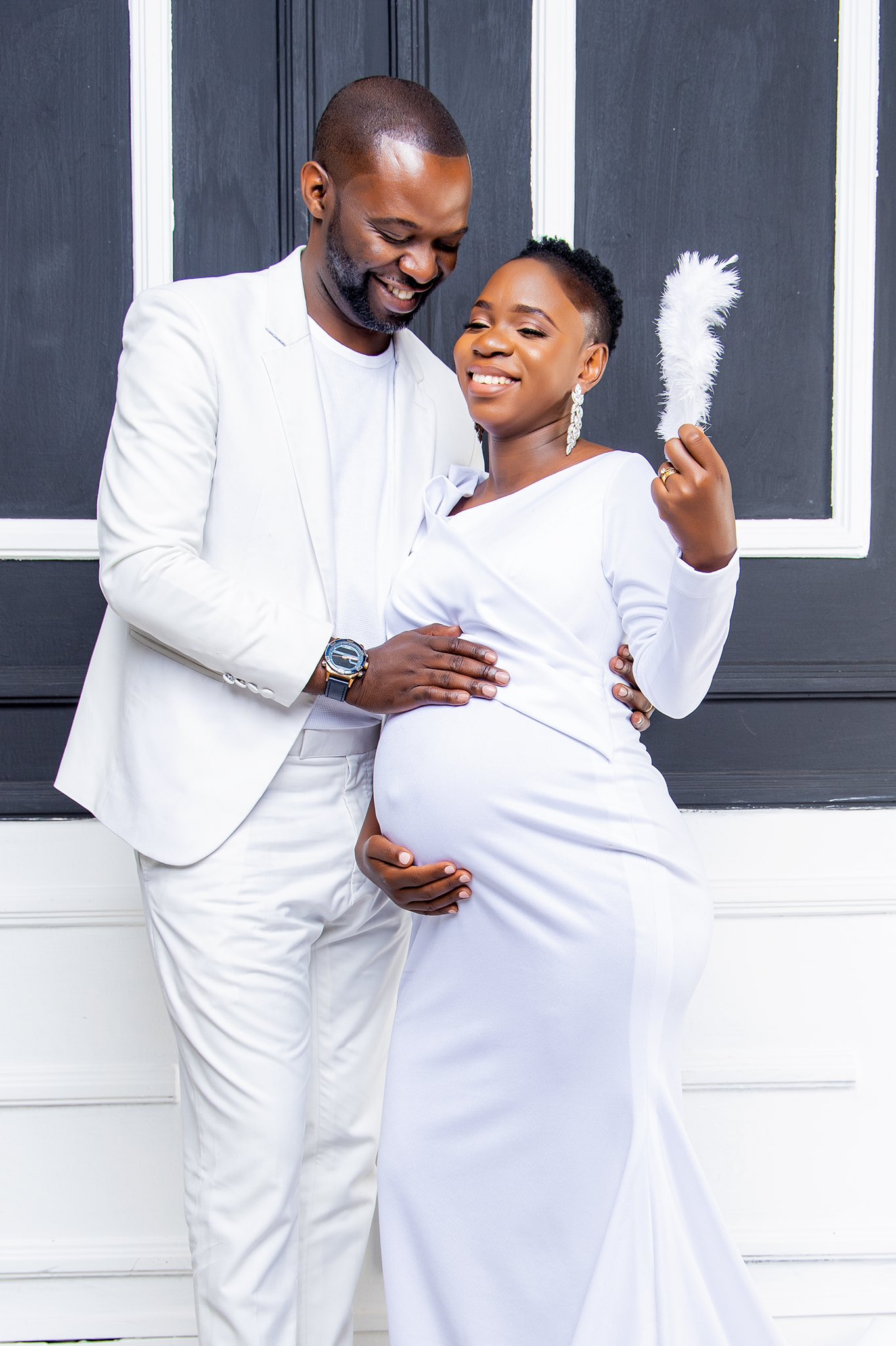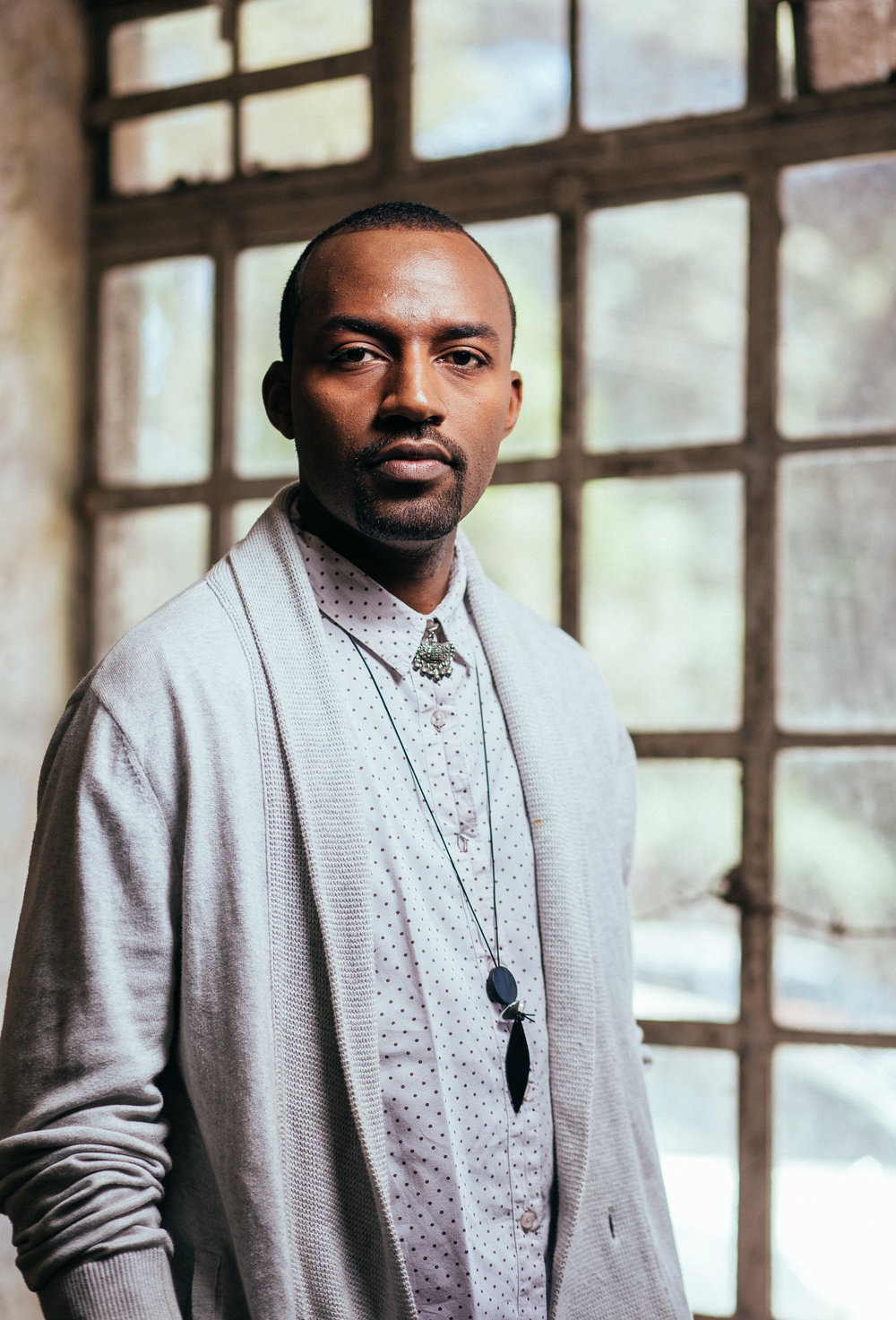By Daily Nation
“I didn’t want to look at my dead baby because I would be scarred emotionally and I wouldn’t move on. I had connected with her and had secretly nicknamed her Peace. Unlike my previous pregnancies, hers was the most peaceful. Effortless. For the first time, my blood pressure was stable and I was sure she would be home eventually. Unfortunately, we lost her at five months and two weeks,” gospel musician Linet Munyali, whose stage name is Size 8, tells Healthy Nation.
On October 1 this year, Instagram users globally updated their timelines as usual. Size 8 and her husband Samuel Muraya alias DJ Mo had two sad successive video updates on the same platform, which they posted concurrently. The first was a nine-second clip which promoted a YouTube video that was to premier at 2.30pm on their channel (the Murayas) that day. The video started with a close-up shot of a blood pressure monitor whose systolic number (the upper reading) was 213. And then a frail Size 8 was introduced, singing an old Sunday school song; Yes, Jesus loves me…
“It is painful, but God is on the throne,” a seemingly dejected DJ Mo said in the video, rubbing his eyes with his hands.
The next post, a 26-second video, had a victorious undertone. While Size 8 was still in the theatre, she acknowledged that she was grateful for a second chance of life –to take care of her two children and to preach the Gospel.
Healthy Nation caught up with Size 8 and for the first time, she openly talks about the lows of pregnancy loss in a national newspaper.
“I have lost two pregnancies, the first baby (my second born) was only 12 weeks and the second had clocked five months and two weeks,” she says.
“We didn’t get any explanation when we lost the first baby. The doctors could not find its heartbeat. The baby had stopped growing, and we were told it was a blighted ovum,” she adds
A blighted ovum occurs when the gestational sac and placenta grow, but there is no embryo (the earliest form of a baby’s development in a womb).
The second loss and most recent was unforeseen. After a peaceful five months, her blood pressure shot up, and her alarm bells rang loudly when she could no longer feel her baby moving.
“I had a rough journey with my first born. My blood pressure shot up to 167, (a normal blood pressure should read less than 120/80 millimetres of mercury). At 36 weeks, we had to have an emergency caesarean-section and she was born,” she tells Healthy Nation.
When she lost her second baby as a blighted ovum, she tried again, and was blessed with a son. However, she details that carrying him set her on a dramatic journey that required her to take a total bed rest at two months of pregnancy.
“I had to take a total bed rest because I had an acute stroke. I wasn’t sure that I would carry him to term. God reassured me despite me visiting the hospital twice a week,” she says.
At 32 weeks, she received a lung injection to support the growth of the baby’s lungs. Two weeks later, there was an unusual calm in her stomach. No kicks, no turns, just silence.
Her blood pressure shot up to 180. When she went to hospital, she was told that the baby’s pressure, too, had gone up.
“This time I had fits (an unusual condition during pregnancy where high blood pressure results in seizures) and so I was given magnesium to stabilise me. My oxygen levels had dropped, that means I had to be on oxygen as well,” she explains.
At 34 weeks, she again had to undergo an emergency cesarean-section to save herself and the baby.
Moderately premature
The baby was moderately premature and had to be incubated for a while. Three days post-delivery, she did not set her eyes on her baby.
“On the third night, I kept praying and praising God for my son. I had just got out of the washroom when I heard the Holy Spirit telling me to go to the Intensive Care Unit to see him. Upon reaching there, I found doctors surrounding him and figured that something was wrong. The Holy Spirit again instructed me to place my palm on his chest, and speak life into him. This may sound like fiction, but he stabilised soon after,” she tells Healthy Nation.
Her blood pressure was still high but her baby was as healthy as a horse. He is a two-year-old boy now, and Size 8 calls him her living miracle.
About two months and two weeks ago, carrying her fourth born, she learnt that she was going to have a stillbirth. Her baby had succumbed to high blood pressure, and the distraught mother wept for her dearest child for more than 24 hours.
“I was to be admitted that night but I protested. I had already lost the one in the womb, my blood pressure was at an all-time high, and I knew that there was a possibility of losing my life on the surgical table. I wanted to see my son and daughter desperately should I fail to go back home,” she says
“I went home that night and held my children’s hands and prayed, crying. They didn’t know why I was crying. I was just afraid that I couldn’t come back from the hospital.”
The next day she went to the hospital and her blood pressure was still high, at 213. Going to the surgery room in that state was a no-win-situation.
“I was battling high blood pressure on my own, but it was also worse due to the dead baby in the womb. The pressure wouldn’t subside. I was at a risk of dying with the baby still in the womb, and I also risked dying on the operation table due to blood loss. In the theatre, I was surrounded by specialists, and my surgeon was amazingly fast and efficient. Taking the shortest time possible to remove the baby and stitch me up gave them a chance at saving my life. I was then wheeled to the high dependency unit for monitoring.
“At the table, I cried to God telling Him to spare my life. I reminded Him that I had delivered my other two children in agony, and that I wanted to be alive to raise them up,” she explains.
Even though she had already bonded with her little girl and even given her a nickname, she figured she would not be able to move on if she lay her eyes on her. Her doctors asked if she was sure, and she reinstated her position. Her husband ,however, agreed and had a chance to see the beauty he would unfortunately never get to raise.
Size 8’s pressure after the surgery plummeted to about 189. By the time she was being discharged, it was at 155.
“I have never had a quicker recovery than I had this time. In a week I was okay. I didn’t cry anymore. People even thought that I was in denial. I had faced death, but I was grateful that God had kept me alive for my two babies,” she narrates.
Size 8 dismisses the rumours that her baby was a mistake. “No baby comes unplanned. It is just that a contraceptive method I was using failed.”
Doctors have told her there is an organ in her system that fails when she gets pregnant, which contributes to the high blood pressure she experiences.
The high-energy singer recalls that her toughest moment following her recent loss was going back home and having no words to tell her first-born daughter that the baby was dead and wouldn’t be coming home.
“My daughter thought I had gone to deliver and when we got home, she rushed to the car asking to see the baby. Seeing her in that situation broke my heart, and I was unable to respond. Later, I told her that Jesus had taken the baby because she doesn’t understand death yet. I will explain it well when she gets older,” says Size 8.
She is also empathetic towards her husband, who, according to her, was hardest hit by the loss of the baby and his wife’s near-death experience.
“I try to imagine myself in his shoes and I don’t think I would be able to bear that pain. He was deeply affected but he has a masking mechanism that doesn’t let us see his pain. He behaves normally now, so I figure he is okay,” she explains.
First pregnancy
Dr Maureen Owiti, an obstetrician-gynaecologist at Kenyatta National Hospital, details that pre-eclampsia is a medical condition in pregnancy associated with high blood pressure and complications to other organs. It mainly occurs during a first pregnancy.
But it can also happen in subsequent pregnancies and once the baby is born, the blood pressure goes back to normal, she notes.
“We do not know what causes pre-eclampsia. What is stipulated is that there is a defective formation of the placenta that contributes to the same. Most people are asymptomatic in the early stages and it can only be detected by taking a blood pressure measurement. But in people who have severe cases, they may present with headache, pain in the upper part of the abdomen, and in very bad cases, the patient may have visual disturbances. They will have blurred vision, and can see things like stars,” explains Dr Owiti.
She explains that very young and very old mothers are at risk, as well as mothers with pre-existing conditions such as diabetes and hypertension. Those with multiple gestations (more than one baby in the womb, say twins or triplets) are also at risk.
“For some people, their blood pressure spikes with every subsequent pregnancy, but it’s related to age, and varies from person to person. If someone has been getting good medical care, and they know that they had pre-eclampsia in their previous pregnancy, they are given aspirin and calcium early in the pregnancy to delay the onset of the symptoms and make the symptoms less severe,” explains the gynaecologist.
The condition, says Dr Owiti, affects about 10 per cent of the pregnant population, and can progress to eclampsia, a severe condition which is characterised by fits.
“Eclampsia is the first complication that we try to avoid for all mothers as well as organ failure. A patient can get renal failure, liver failure, bleeding of the brain, neurological deficit and pulmonary failure and distress. It can also lead to death for the baby, mother or both,” explains Dr Owiti.
“Pre-eclampsia can only be managed by doing early ultrasounds at 16 weeks for the doctors to find out whether a pregnant woman is likely to get the condition. If likely, this is when we give calcium and aspirin to manage the symptoms. We cannot prevent pre-eclampsia entirely,” she adds.
She recommends that if women get preconception care before trying for a baby, and pregnant women get antenatal care, many complications that arise during pregnancy can be prevented.
Dr Brian Maugo, a neonatologist and lecturer at the University of Nairobi, tells Healthy Nation that pre-eclampsia is a major cause for babies born prematurely.
“Pre-eclampsia puts the mother at risk because of the high blood pressure and sometimes they have to give birth earlier . This means that the baby may not have achieved full growth hence classified as premature,” Dr Maugo explains.
Dr Maugo advises that pregnant mothers should religiously go for the antenatal clinic visits, which will help in pointing out if there is an issue with the baby.
“When a mother notices regression in terms of growth when the baby is still in the womb, say, they could be losing weight or stagnating, they need to go for a check-up.
“Kenyatta National Hospital has a high risk clinic for such cases and adopting it countrywide will help in saving many lives.”
There is no national data by the Ministry of Health on women in Kenya with pre-eclampsia or eclampsia to help us understand the scope of its proliferation in the country.
The World Health Organization (WHO) recommends improving care for women during pregnancy and around the time of childbirth to prevent and treat pre-eclampsia and eclampsia in order to achieve health targets of the Sustainable Development Goals.
“Efforts to prevent and reduce morbidity and mortality due to these conditions can help address the profound inequities in maternal and perinatal health globally. To achieve this, healthcare providers, health managers, policy makers and other stakeholders need up-to-date and evidence-informed recommendations to guide clinical policies and practices,” says WHO.





